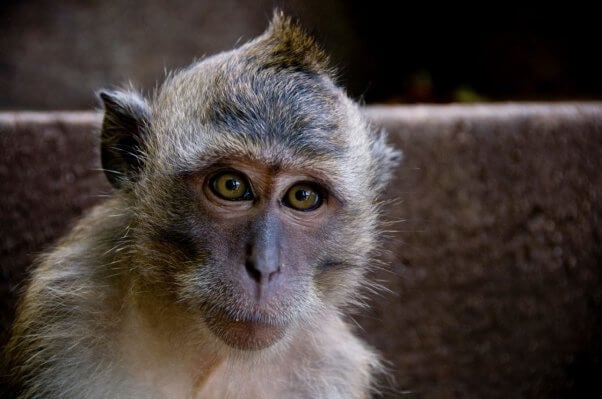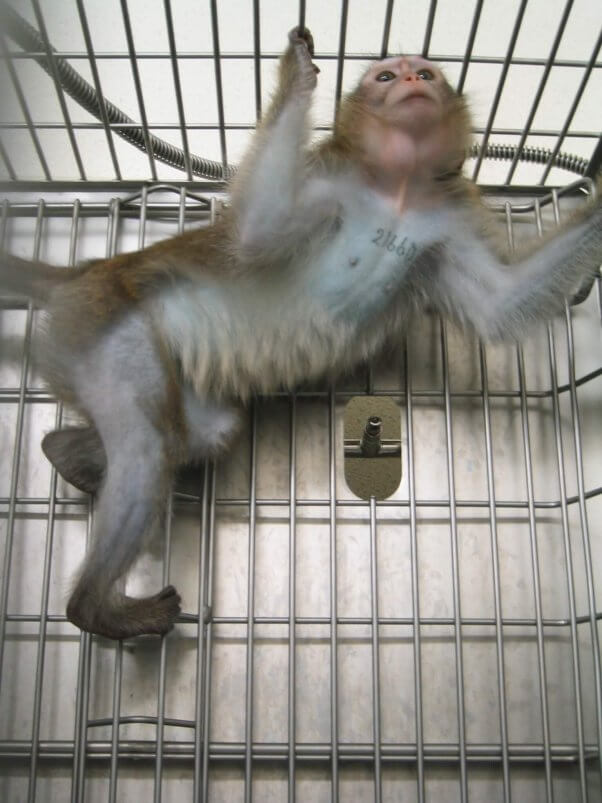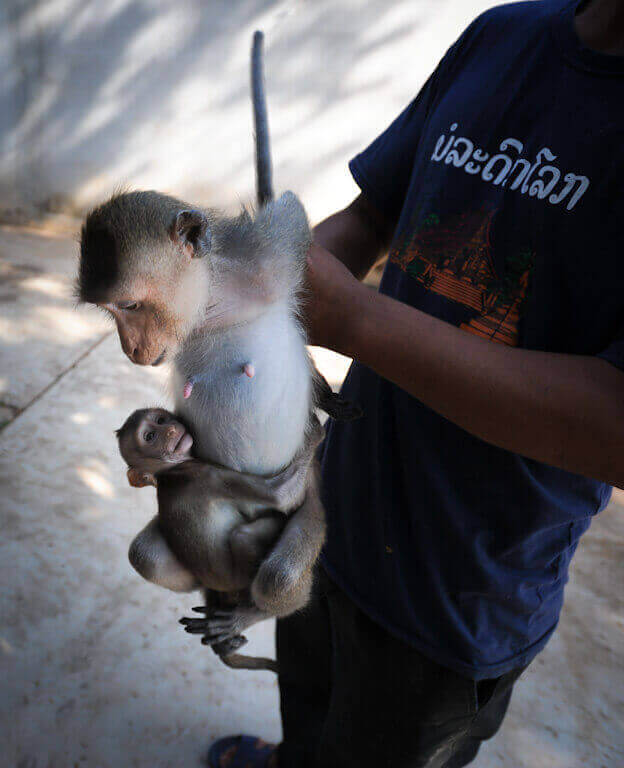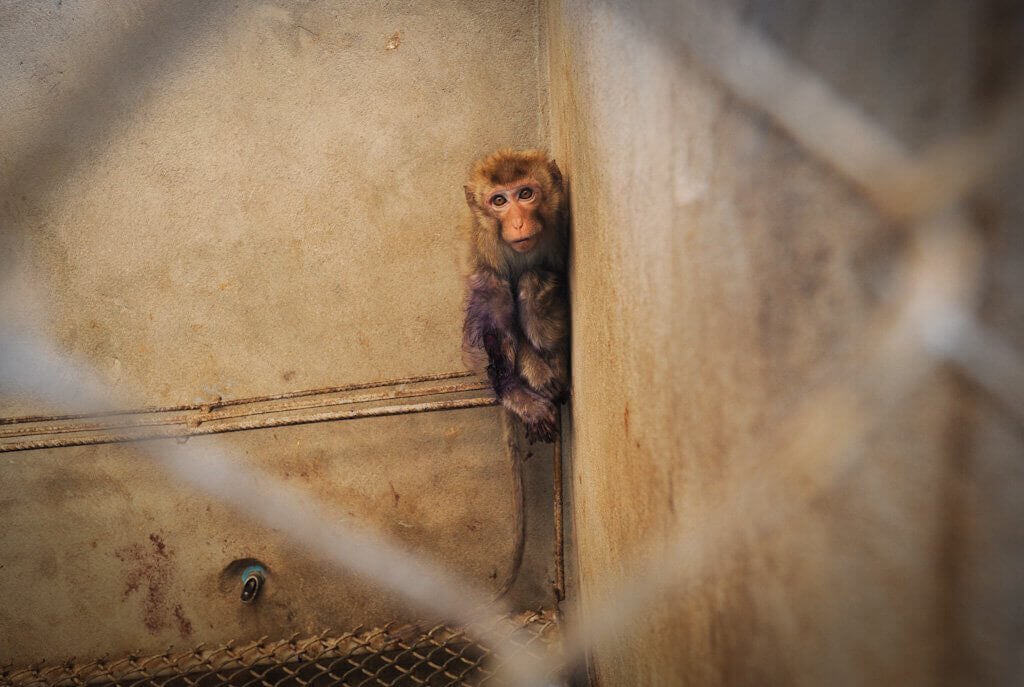U.S. Fish & Wildlife Service Placates Animal Experimenters, Fails Monkeys
Update (October 10, 2024): The U.S. Fish & Wildlife Service just caved to the monkey experimentation industry.
The agency has denied two petitions for rulemaking (here and here) from prominent primate scientists, including Dr. Jane Goodall and Dr. Birutė Galdikas, and more than 30 wildlife, scientific, and animal protection organizations to grant protections under the U.S. Endangered Species Act to two species of monkeys before they’re wiped off the planet by the insatiable animal experimentation industry.
The agency took more than 500 days to make this shameful decision and still ignored data from hundreds of scientists who have been working for decades in the natural habitats of these monkey populations. The agency also disregarded the fact that the International Union for Conservation of Nature lists these species as endangered. Fish & Wildlife chose to placate the animal experimentation industry, rather than protecting these two species, whose populations are being decimated by that very industry. In their zeal to get their hands on the monkeys, importers and experimenters are ignoring not only that the primate importation pipeline brings public health risks but also that soon there will be no more of these animals to snatch from their homes and torment in what has proved to be failed and unethical “research.”
Here’s how you can help monkeys: Please urge Fish & Wildlife not to resume monkey imports from Cambodia.
Then urge the secretary of the interior to send more than 1,000 monkeys allegedly illegally imported into the U.S. to sanctuaries!
Original post:
Why have endangered monkeys been sent to the U.S. by the thousands, destined for cruel and deadly experiments?
The International Union for Conservation of Nature (IUCN), the world’s most comprehensive information source on the global conservation status of animals, issued a dire report in July 2022: Animal experimentation has pushed two species of monkeys to the brink of extinction.

Recent assessments of wild populations of long-tailed and pig-tailed macaques, conducted by primatologists throughout Southeast Asia, yielded staggering data on the increasing threats to these once plentiful monkeys. Based on the data, the IUCN elevated these two species from “vulnerable” to “endangered,” landing both of them on its Red List of Threatened Species, among the other most endangered species on the planet. The IUCN warned that if immediate action isn’t taken, these species will face catastrophic population declines in coming years.

A devastating and reversible threat facing long-tailed macaques is their trapping and export for the primate experimentation industry.
These species have been part of the social and cultural traditions throughout Asia for millennia. They play critical roles in the ecosystem and are individuals with the right to lead their own lives in their own homes—but they’ve succumbed to the experimentation industry’s demand for a steady stream of animals for misleading and wasteful experiments. Every year, tens of thousands of long-tailed macaques are imported, and many are caught up in a monkey-abduction pipeline that’s emptying Asia’s forests and filling the cages of commercial importers and experimenters in the U.S. Experts tell PETA that there will soon be no wild long-tailed macaques left in Cambodia, Laos, or Vietnam. The demand for these animals to be captured and sent to the U.S. has surged, and the false claims issued by experimenters about a supposed “monkey shortage” have likely played a role in alleged monkey laundering and smuggling.

In light of the IUCN’s findings and the subsequent acceleration of the populations’ decline in their natural habitats, the FWS has the authority and the obligation to add long-tailed and pig-tailed macaques to the list of animals protected under the Endangered Species Act (ESA). Listing them could stop the importation of these primates abducted from their homes in nature and require the implementation of a plan for the species’ recovery.
The FWS needs to act!

There’s no time to waste. The future of these monkeys—and their native homes that depend on them—are in the hands of the agency.

